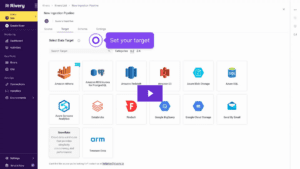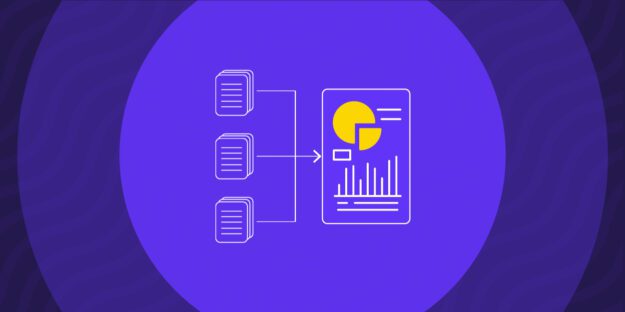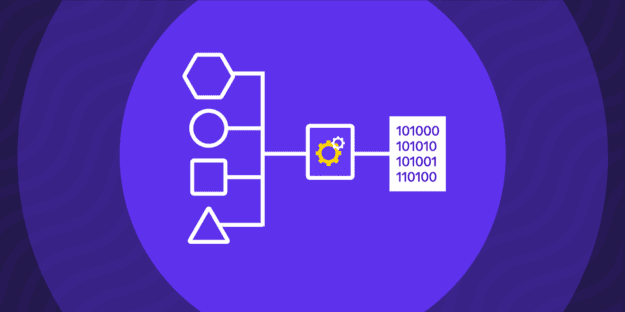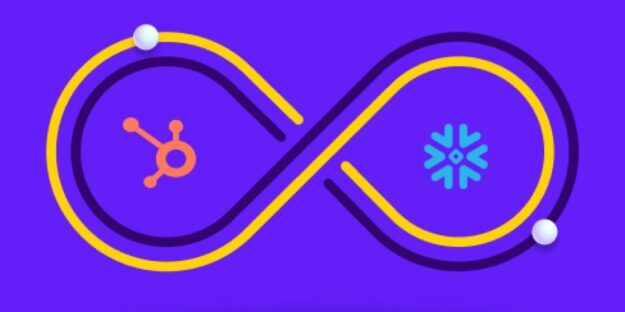In today’s data-driven world, managing data efficiently is paramount. Data management is the backbone of decision-making processes in forward-thinking companies.
Massive volumes of data enter and exit business on a daily basis. The way data is collected and analyzed is what renders businesses competitive or lagging behind. In that context, choosing the right tool is crucial.
Enter DataOps management tools that work “behind the scenes” to ensure data flows smoothly and is correctly organized, accessible, and ready for analysis. For data teams, choosing the right DataOps tools is like finding the right glove to fit, the right tool is essential to keep everything running smoothly.
This article discusses the vital role of DataOps management tools and how the best DataOps tools contribute to cohesive and efficient data.
What Are Dataops Tools?
DataOps tools are software solutions designed to simplify and optimize data management and analytics workflows.
These tools handle tasks such as data ingestion, transformation, quality management, cataloging, and orchestration. By automating these processes, DataOps tools enhance efficiency and ensure the smooth operation of data pipelines.
They play a crucial role in maintaining data quality and accessibility, enabling organizations to quickly adapt to changing data needs and improving overall data-driven decision-making.
Benefits Of DataOps Management Tools For Businesses
One of the strengths of DataOps management tools is their capacity to integrate data from different data systems and ensure top data quality, data orchestration, observability, cost management, and governance.
The main reason why businesses use DataOps tools is to streamline and unify everything from ELT, data quality and observability to data governance. The tools arm businesses with total visibility, helping them gain better insight into their operations in order to make data-driven business decisions and outcomes.
However, having a lot of choices can be daunting, and mistakes can happen. Well-rounded DataOps tools enhance the efforts of data teams in regard to collaboration, efficiency, and data quality.
Let’s look at 3 ways in which DataOps tools can enhance your business operations:
DataOps Tools Boost Collaboration
Often, DataOps platforms allow data teams to use a centralized repository to store (and manage) data assets. This particular feature is what allows data teams and individuals to collaborate in real-time and on the same data.
Moreover, DataOps tools also come with version control features that allow many users to work on data pipelines and data transformations without overwriting the work each of the users is currently performing.
Besides offering a centralized repository and version control capacities, top-shelf DataOps tools also allow for role-based access. In other words, this means that only authorized personnel can access a particular data pipeline or configuration. In this context, DataOps tools help businesses maintain data integrity and security.
Another noteworthy feature of DataOps tools is the option for collaborative workflows. This means that a DataOps platform allows data engineers, data scientists, and data analysts to work together on the same data project seamlessly. Plus, all of the participants gain clear visibility of the transformative processes around data.
DataOps Tools Promote Efficiency
One of the major upsides of using DataOps tools is the efficiency-boosting properties. DataOps can automate and orchestrate data so that data operators spend less time doing manual work and instead focus on valuable projects.
By automating data processes, such as data ingestion, data transformation, and data validation, businesses effectively narrow the window for errors while also accelerating the data processing pipeline.
Since we mentioned data orchestration, it’s important to note that a DataOps platform is the perfect tool for scheduling data-related tasks and complex data workflows, along with minimizing dependencies. In such a scenario, all data processes run efficiently and follow a determined sequence.
By the monitoring and alerting features, DataOps tools allow data operators and decision-makers insight into changes in data so that the issues can be addressed immediately. Subsequently, this leads to reduced bottlenecks in the data pipeline, enhancing the overall efficiency of the processes.
Another noteworthy perk of DataOps tools is their resource-optimization capacities. DataOps tools are perfect for resource allocation and scaling, depending on preference. This translates to cost reduction and highly efficient resource use.
DataOps Platforms Improve Data Quality
Data validation and data profiling are two noteworthy features of solid DataOps tools. These tools include data validation and quality checks during different stages of the data pipeline. By doing so, data operators are able to act accordingly and tweak data to ensure a preferable level of quality.
Due to these tools’ data profiling capabilities, data scientists can assess the quality of data, become aware of any anomalies the tool has pinpointed, and accept suggestions to improve the data quality. In addition, thanks to their robust data governance capacities, DataOps tools ensure all data is usable, accurate, structured, and aligned with data regulations.
Additionally, DataOps teams can deploy data transformation and cleansing processes to clean data and enrich it. This entails eliminating duplicates and correcting typos, as well as feeding missing values.
With the help of solid DataOps tools, data teams can also integrate external data outlets to enrich data even further, improving its usability and overall quality.
3 Common DataOps Frameworks and Platforms
In today’s market, there are several tools for DataOps that are widely used for orchestrating and managing data workflows. Apache Airflow, Prefect, and Dagster are 3 of the most popular options:
Apache Airflow
The platform is one of the go-to choices for data operators looking to streamline data processes efficiently. Apache Airflow provides an array of plug-ins that are ready to use for completing tasks on Google Cloud Platform, Amazon Web Services, Microsoft Azure, and more.
Key Features
- Open-source platform
- workflow scheduling, monitoring, and dependency management capabilities.
- Set of operators and connectors for data integration.
Benefits
- Scalability
- Flexibility
- Supports complex DAGs
Use Cases
- For ETL (Extract, Transform, Load) processes
- Data pipeline automation
- Orchestrating data workflows across diverse systems.
Prefect
Here is a reliable and powerful open-source platform that’s the perfect choice for managing and orchestrating workflows. With its many built-in mechanisms, Prefect makes error handling and retries easy and user-friendly.
Key Features
- A modern DataOps framework
- Simple and reliable
- Python-native DSL for defining workflows and built-in scheduling.
Benefits
- Ease-of-use and debugging
- Advanced features (parameterization and dynamic workflows)
- Suitable for organizations with growing data needs
Use Cases:
- For organizations looking for Python-centric DataOps solutions
- Good fit for data science and machine learning workflows.
Dagster
In essence, Dagster is an open-source data orchestration platform used for developing, producing, and observing data assets in real time. With Dagster, data scientists, engineers, and developers can manage the whole lifecycle of data assets, from development to testing to production and monitoring.
Key Features
- Data testing and quality assurance
- Runs on a GraphQL-based configuration system
- Merging tasks into repositories
Benefits
- High data quality and detailed testing options
- Automatic tracking of dependencies between tasks
- ML frameworks integrable
Use Cases
- Good choice for businesses in healthcare, finance, and compliance-driven environments.
If we compare the three DataOps platforms, we’ll come to the conclusion that Apache Airflow is a suitable choice for a diverse, data community-friendly solution to tackle rather complex and robust data workflows. On the other hand, Prefect runs on a more Python-based approach, focusing on flexibility and simplicity. Lastly, Dagster may be the most suitable choice for businesses looking to enhance data quality and testing processes.
10 Best DataOps Tools
From Rivery to Datafold to Unravel, there are a handful of powerful DataOps management tools to streamline your data workflow. Whichever option you choose, make sure you are aligning your business needs with the tool’s capabilities and features. Here are the 10 best DataOps tools on the market today:
1. Rivery
Rivery is a no-code, cloud-based SaaS ELT platform specializing in big data. This DataOps platform comes with more than 200 pre-built connectors and over 15 supported data destinations. Additionally, Rivery supports different processes, including ELT, Reverse ETL, and transformations plug-and-play starter kits with pre-built “rivers.” These rivers easily connect to popular data sources and destinations.
Some of the reasons why Rivery’s client base keeps growing are its simplicity and rich features. Rivery’s connectors are robust, and the list of available plug-and-plays keeps on growing. Thanks to Rivery’s user-friendly UI, the tool’s features are easy to use and flexible enough to adapt to most data systems. In addition, the tool ensures all of its features are relevant to data-driven businesses and aligned with the best data practices.
Clients prefer Rivery for its flexibility since it allows for coding in Python and SQL for data transformations. With the tool, you can perform the following:
- Source-to-Target river for data ingestion;
- Logic river for data transformation and workflow orchestration;
- Action river to make REST API calls and more.
2. DataOps.live
DataOps.live allows teams and data developers to boost their productivity levels and ensure powerful data governance. Due to its features like pipeline orchestration, environment automation, unified observability, and continuous testing, DataOps.live is a good choice for businesses looking for a unified cloud developer experience (DX) running in Snowflake.
This DataOps Platform ensures a 360-degree solution covering every stage of the DataOps lifecycle.
3. Tengu
Businesses rely on Tengu to achieve more streamlined data workflows. Tengu stands as another solid DataOps platform that allows companies to utilize their existing data to the fullest. With this tool, companies of all sizes can transform their data into a valuable resource that is readily available and has the potential to boost the overall efficacy and applicability of data.
Data scientists and data engineers can accelerate their task execution efforts involving data-to-insight cycles.
4. Datafold
The next DataOps tool, Datafold, is another reliable data platform that specializes in data quality management. By doing so, Datafold helps companies avoid major data setbacks.
By using Datafold, businesses can detect, evaluate, and investigate problems regarding data quality before it becomes a productivity concern. Additionally, Datafold offers real-time monitoring for faster issue detection.
5. High Byte Intelligence Hub
This DataOps tool is the first DataOps platform specially developed to handle industrial data. It allows businesses in the industrial sector to accelerate and scale the use of their operational data.
High Byte Intelligence Hub allows data operators to contextualize, standardize, and secure data for operational purposes.
6. DataKitchen
DataKitchen is a DataOps platform that offers solid and reliable data orchestration and data automation processes. The tool simplifies data prediction workflows, streamlining the process from access to delivery of data.
DataKitchen offers automated data monitoring processes and testing data pipelines while reducing the analytics cycle.
7. Unravel
With Unravel, businesses can monitor, handle, and improve data pipelines, whether in the cloud or on-premise. The DataOps platform specializes in boosting the performance of your revenue-building applications by running on relevant data.
Unravel gathers metadata from your ecosystem and transforms it into a comprehensive view of your data’s performance. With such a unified full-stack visibility, data operators are able to browse, correlate, and examine everything in your existing data systems.
8. Zaloni Arena
This DataOps platform is a solid pick for businesses looking for detailed visualizations of their data’s performance. Zaloni Arena delivers solid masking and tokenization options, which ensure top-shelf data security. DataOps features are available through an agile platform that enhances and protects data sets.
9. Shipyard
This DataOps tool is a comprehensive data orchestration platform specially developed to help large data teams simplify and consolidate different data processes. Additionally, data operators are free to deploy a code in any language they use.
Shipyard allows data operators to work directly in the cloud, which eliminates the need to manage multiple servers to operate data.
10. Talend
This DataOps platform aims to help businesses ensure healthy and structured data. Talend enables data operators to be in control, mitigate risks, and extract value from data. Some of the tool’s strong suits include data integration and governance to ensure clean, reliable data.
Supplementary DataOps Tools
Well-rounded DataOps platforms and tools are practically the catalysts that entice development and scalability, along with increasing the business’ capacity to output data and reduce errors and costs.
Besides the tools we shortlisted above, there are some complementary DataOps tools to consider:
ETL Tools for Seamless Data Extraction, Transformation, and Loading
ETL tools revolve around processes that involve the extraction, transformation, and loading of data. In essence, ETL tools employ a three-phase process that results in clean and structured data that can be output to multiple destinations. Rivery, Integrate.io, Fivetran, and Oracle are some of the best ETL tools for optimal data processing.
Collaboration and Communication Tools for Efficient Teamwork
Collaboration tools include a pool of technologies that deliver real-time messaging, as well as file-sharing, group or individual chats, video conferences, shared calendar options (scheduling), and more collaborative features.
Jira, Trello, and Asana are some of the most used collaboration and communication tools among data teams.
Monitoring and Analytics Tools for Data Quality Assurance
Typically, monitoring and analytics tools are used to ensure data quality. These tools are vital to data teams, as they allow them to get valuable insight into the accuracy, consistency, and reliability of the data.
Some of the most popular monitoring and data analytics tools include Apache Nifi, Informatica, and IBM.
Criteria for Selecting DataOps Management Tools
Before anything else, DataOps tools should deliver solid, if not superb, data orchestration capacities. In that context, good DataOps management tools enable businesses to build, plan, and observe different data workflows seamlessly.
Some of the vital components of DataOps management tools include support for different data processing engines, real-time data monitoring options, and the delivery of alerts whenever changes occur. Additionally, a solid DataOps management tool comes with strong workflow builders equipped with visual features.
Below, we’ve listed some of the critical aspects to consider before choosing a DataOps platform:
Scalability
Scalability is front and center for DataOps tools. If a tool offers scalability, it means it can keep up pace with the growing need for your data. In other words, a scalable DataOps tool is one that can support a growing number of users, as well as handle operational intricacies. A DataOps tool that is scalable can work with massive data volumes and process them in almost real-time.
Integration
Another key criterion to consider when choosing a DataOps tool is its integration capacities. You are looking at a tool that is compatible with the existing data systems and processes. Ideally, a DataOps tool comes with pre-built connectors (the more, the better) that can correlate with your data management machinery.
User-friendliness
If a DataOps platform requires a steep learning curve, you might not be able to fully reap its benefits. In other words, the simpler the UI, the better the operational capacity of the tool. Look for DataOps tools that are open-source and do not require a user manual, per se.
Whether used by experienced data scientists or data operators with little to no experience, a solid DataOps tool should be designed to cater to both profiles.
Flexibility
Regarding DataOps tools, flexibility is as important as its scalability capacities. What makes a DataOps tool flexible? The capability to adapt to data project requirements of almost all scopes and sizes. Plainly put, a flexible DataOps tool is one that can be configured and modified to align with the specific requirements and data needs in various data systems.
In essence, a user-friendly DataOps tool is also a flexible one, meaning it won’t require extensive coding for simple data tasks.
Key Takeaway: Choosing the Right DataOps Management Tools
Whether you are a small business owner or a part of a large corporation, the success of your business depends on how well you use (or fail to use) data. With the right business tool at hand, you can improve your business’ performance and gain a competitive edge.
DataOps tools are an essential addition to any business strategy. One of the reasons why modern-day businesses should not be without a well-rounded DataOps tool is flexibility. DataOps platforms are an ideal choice when it comes to boosting your existing data processes and extracting the most value from data.
DataOps platforms not only streamline data workflows but also contribute to the quality of data. When choosing a DataOps tool, make sure you know what to look for regarding the integration capacities, scalability, user-friendliness, and flexibility.
Rivery is among the top contestants for the best DataOps platform today. The flexibility and versatility of the tool allow for seamless data workflows, boosted data accuracy, improved team collaboration, and more.
Minimize the firefighting. Maximize ROI on pipelines.





